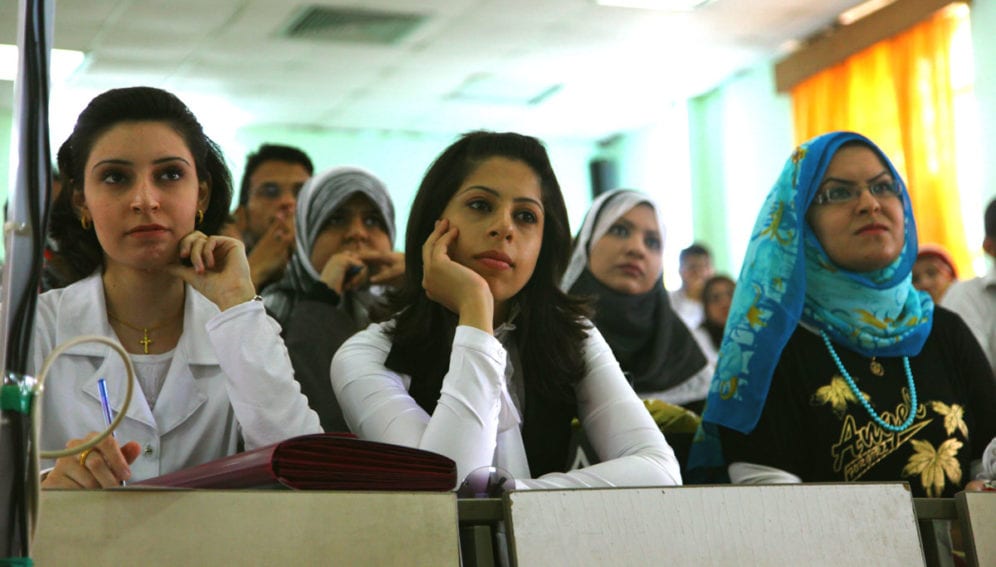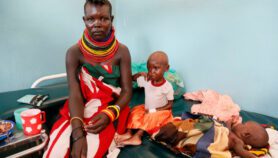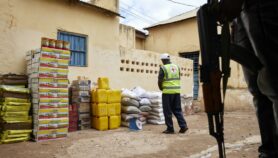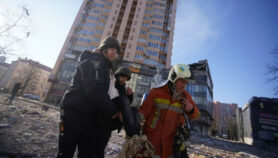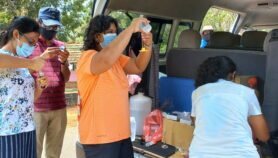By: Adel Fakhir
Send to a friend
The details you provide on this page will not be used to send unsolicited email, and will not be sold to a 3rd party. See privacy policy.
[BAGHDAD] Scores of students and professors have left Iraqi universities as the militants of the self-styled Islamic State (ISIS) continue to advance in Iraq and Syria — but now the group appears to want the researchers to come back.
“We grant all teachers … whose place of work or residence is within the caliphate [an Islamic state], a maximum period of ten days from the date of this statement to return and resume their work. If they fail to do so, their moveable and immovable property will be confiscated,” reads a leaflet, reportedly distributed by ISIS on 3 October.
Having captured large swathes of Syria and Iraq, in late June ISIS stated it had created a caliphate stretching from Aleppo in Syria to the province of Diyala in Iraq. The group has reportedly replaced the name ‘Republic of Iraq’ on some universities and research institutions with ‘Islamic State — Knowledge Bureau’.
Schools and universities in Iraq were supposed to start the new academic year on 21 September, but the Iraqi Ministry of Education postponed this to 22 October because of the fighting.
Hundreds of schools remain shut, and universities in Anbar, Mosul and Tikrit are empty.
But there are conflicting reports as to who controls them. Some local media suggest that the Iraqi government is in charge of public institutions such as Tikrit University and the University of Samarra in Salahuddin, as well as several private ones, including Imam Sadiq University in the Dujail district, Balad University and Tuz Khormato University.
However, other reports say that, even though the army indeed claims to control the establishments, students cannot access them unless allowed in by ISIS.
A Mosul University researcher who wished to remain anonymous tells SciDev.Net that dozens of graduate students stopped their studies after the ISIS militants took control of the city. Many students were unable to continue with their experiments, he said, especially those that needed electricity and communication tools such as the internet to carry out their research.
To help students who can no longer attend classes avoid failing their degrees, the Iraqi Ministry of Higher Education and Scientific Research has decided to “consider the new school year [for undergraduate] students living in [the affected] provinces a no-fail year”, says Ghassan Hamid Abdel Majed, director-general of the ministry’s Research and Development Department.
Graduate students who have fled their home province because of the violence have also been allowed to complete their studies at a different university in their new province of residence, he adds, provided their specialist subjects are taught there.
But the transfer may not be that easy. Raed Al-Khashea, a graduate law student at the University of Tikrit, escaped the conflict but lost all his documents — so, he says, a potential new host university may simply refuse to accept him.
Money is also an issue, he adds, as moving to a university in Iraq’s capital Baghdad, for example, would sharply increase the cost of living. He also fears a change in professors, “because the research methodology differs from one university to another as well as from one professor to another”.
The state, however, intends to support the relocated students’ research with grants of at least 100 million Iraqi dinars (US$90,000).
“The ministry has supplies of scientific instruments which will be used to compensate universities at their alternative sites,” says Qassim Mohammed Al-Ataby, the ministry’s undersecretary.
This article was originally posted in Arabic on SciDev.Net’s Middle East and North Africa site.


